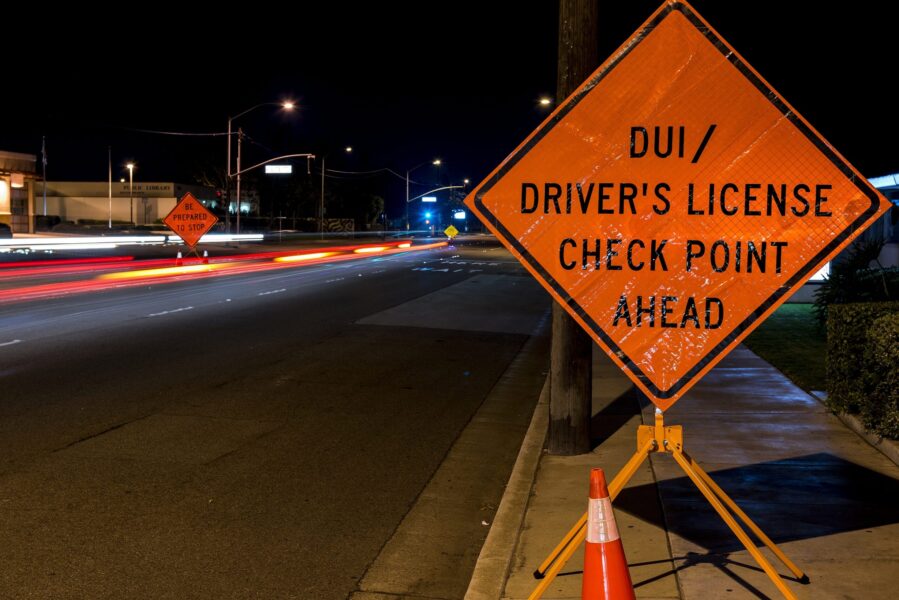
Can You Be Charged with a DUI While on Prescription Medication?
Navigating the complexities of DUI laws and how they intersect with prescription medication use is a challenge many drivers never expect to face. While most people associate DUI charges with alcohol consumption or illegal drugs, many do not realize that prescription medications can also impair driving abilities and lead to serious legal consequences. For individuals in Roanoke, Virginia, understanding how local DUI laws apply to prescription medications is crucial, as is knowing what to do if faced with such charges. This blog will explore the connection between DUI law and prescription medication, the legal landscape in Roanoke, and the possible defenses against such charges.
Understanding DUI Laws in Roanoke, Virginia
Virginia has strict laws surrounding driving under the influence (DUI). Under Virginia Code Section 18.2-266, it is illegal for anyone to operate a motor vehicle while impaired by substances that could affect one’s ability to drive safely. This includes not only alcohol and illegal drugs but also prescription medications. The law defines impairment as a state where the driver’s ability to safely operate a vehicle is compromised to any degree. A DUI charge does not hinge solely on the presence of illegal substances but rather on the driver’s level of impairment, regardless of whether the substance causing it was legally prescribed.
One of the ways law enforcement determines impairment is through field sobriety tests, chemical tests such as blood or urine analysis, or observations of erratic driving behavior. Unlike alcohol-related DUIs, where a defined blood alcohol concentration (BAC) limit of 0.08 percent serves as a threshold, prescription drug DUIs rely heavily on officer observations and the effects of the drugs on the driver.
Prescription Medications and Impairment
Many drivers assume that because their prescription medications are legally obtained and medically necessary, they are exempt from DUI scrutiny. This is not the case. Prescription drugs such as opioids, benzodiazepines, muscle relaxants, and even some antihistamines can impair reaction times, cause drowsiness, and affect judgment. These side effects can significantly impact a driver’s ability to respond appropriately to road conditions.
For example, opioid pain relievers such as oxycodone or hydrocodone are well-known for their sedative effects. Benzodiazepines like Xanax and Valium, often prescribed for anxiety or sleep disorders, can cause dizziness and slowed coordination. Even non-sedating medications such as Adderall or Ritalin, used to treat attention deficit hyperactivity disorder (ADHD), can lead to erratic driving behavior when taken in excess doses. Because each individual reacts differently to medication depending on factors such as dosage, weight, and tolerance level, what constitutes impairment can vary widely.
Law enforcement does not require proof that a person knowingly drove while impaired. Simply demonstrating that the medication affected their ability to drive safely can result in a charge. It is critical for drivers to read the warning labels on their prescriptions carefully and consult their doctors about possible side effects before driving.
Legal Considerations for Prescription DUI Cases
Facing a DUI charge for driving under the influence of prescription medication involves unique legal considerations. Unlike alcohol-related DUIs, these cases often revolve around proving whether the driver was impaired due to the medication and whether the impairment was significant enough to endanger public safety.
Virginia courts may take into account whether the individual had been properly taking the medication as prescribed by a licensed medical professional. However, even compliance with a prescription does not exempt a person from legal liability if the medication affected their ability to drive. Additionally, the prosecution may present evidence such as toxicology results, video footage of the driver’s behavior, or testimony from law enforcement officers to demonstrate impairment.
A significant challenge in prescription DUI cases stems from the subjectivity of “impairment” and the fact that different medications metabolize differently in each person’s system. This often creates legal gray areas that require careful examination by a skilled attorney.
Defenses Against DUI Charges While on Prescription Drugs
Several defenses can help individuals fight DUI charges stemming from prescription medication use. The success of these defenses often depends on the specific circumstances of the case and the quality of legal representation. One common defense strategy is challenging whether the driver was truly impaired at the time of the arrest. An attorney may demonstrate that the side effects of the medication did not cause significant impairment and that external factors, such as fatigue or illness, may have influenced the driver’s behavior.
Another defense is questioning the accuracy of field sobriety tests or chemical analyses. Field sobriety tests are inherently subjective and can be influenced by non-impairment factors such as medical conditions, uneven surfaces, or poor lighting. Similarly, blood or urine tests may not accurately measure impairment, as the presence of prescription drugs in a person’s system does not necessarily correspond with the level of impairment at the time of driving.
An attorney may also examine whether law enforcement had probable cause to initiate the traffic stop. If it can be shown that the stop was made without reasonable suspicion or that officers did not follow proper procedures during the investigation, the case may be challenged or dismissed. Additionally, demonstrating that the client followed their doctor’s instructions precisely and was unaware of the medication’s impairing effects could also serve as a strong defense.
Why Seeking Legal Counsel is Essential
Being charged with a DUI involving prescription medication is a serious matter that can have lasting consequences, including hefty fines, license suspension, and criminal records. Charges of this nature require a nuanced understanding of both state DUI laws and the specific pharmacological effects of the medication involved. Consulting with an experienced DUI defense attorney can provide much-needed clarity and increase the likelihood of a favorable outcome.
If you or someone you know has been charged with a prescription-related DUI in Roanoke, Virginia, the team at Strickland, Diviney & Segura has the expertise needed to evaluate your case and build a strong defense. Our attorneys have a proven track record of handling DUI cases, including those involving complex drug-related charges.
Do not leave your future to chance. Reach out to Strickland, Diviney & Segura today at (540) 982-7787 to schedule a consultation and get the legal assistance you deserve.




